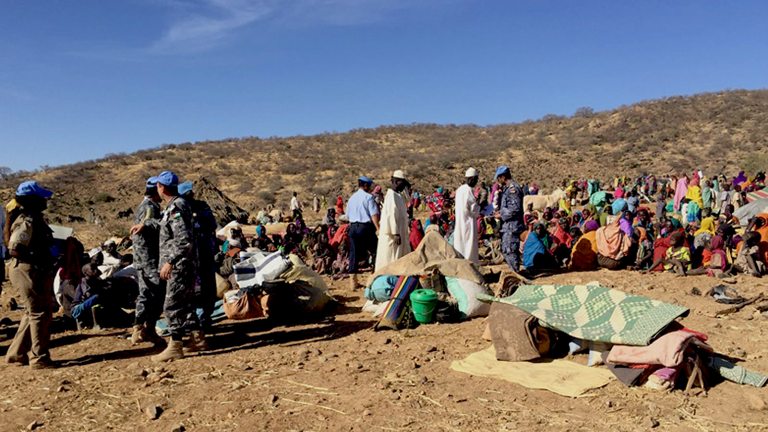AUPSC delegation visits North Darfur

May 16, 2017 (KHARTOUM) – A visiting team from the African Union Peace and Security Council (AUPSC) Tuesday has started a visit to Darfur to assess the situation in the restive region.
The AUPSC delegation on Tuesday met with the governor of North Darfur state Abdel-Wahid Youssef and the security committee in El-Fasher to discuss the recent developments in the state.
Youssef has briefed the African team on the security and humanitarian situation besides refugee issues and development and services programs, pointing to the coordination between his government and the hybrid peacekeeping mission in Darfur (UNAMID).
He also pointed to challenges facing his government including illegal migration, human trafficking and arms proliferation, mentioning efforts to collect illegal arms and address employment, refugee and IDP’s issues.
The security committee, for its part, gave a detailed explanation of the political, security and humanitarian developments besides efforts to impose state authority across the state.
In press statements following the meeting, the Ugandan envoy and head of the AUPSC delegation Molu Katandi said they came to assess the situation in Darfur, pointing the team will also visit Central Darfur’s state capital, Zalingei.
He praised the significant improvement of the situation in the region, pointing to the joint cooperation between North Darfur government and UNAMID.
MEETING UN PANEL OF EXPERTS
Meanwhile, the governor of North Darfur has met with the United Nations Panel of Experts on the Sudan established pursuant to the UN Security Council resolution 1591 (2005).
In press statements after the meeting, Youssef said he briefed the delegation on government efforts to combat illegal migration and human trafficking operation on the border.
He pointed to cooperation between his government and the UNAMID, saying the people of Darfur are the most affected by the sanctions imposed on Sudan.
UN Security Council Resolution 1591 imposes travel bans and asset freezes on parties involved in the conflict in the western Darfur region.
Also, it imposes an arms embargo on Darfur and called on states that supply Sudan with military equipment to take measures to prevent its use in Darfur.
(ST)
